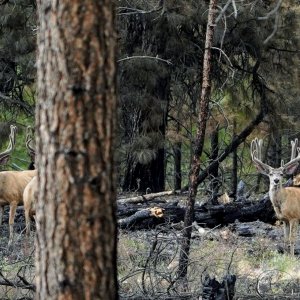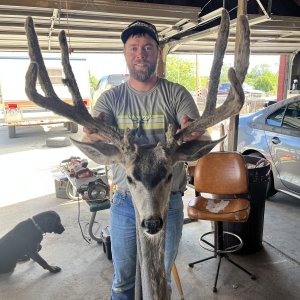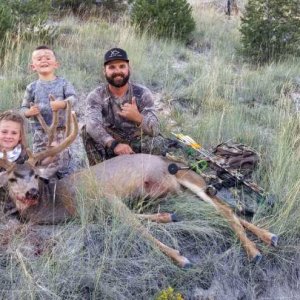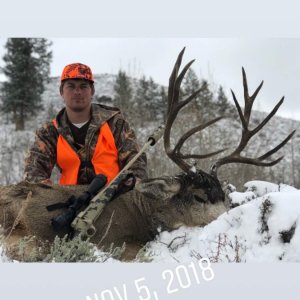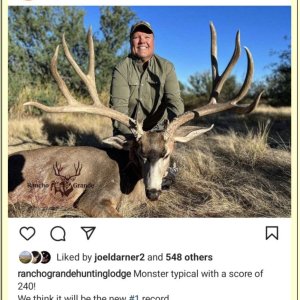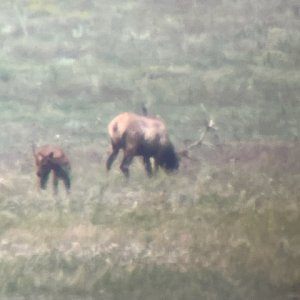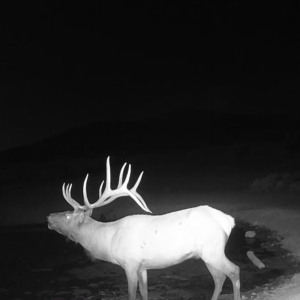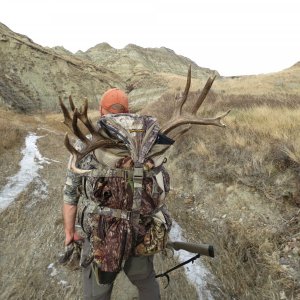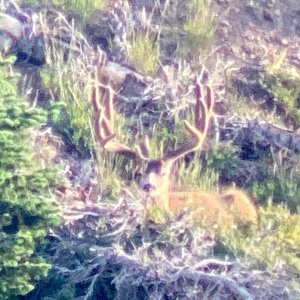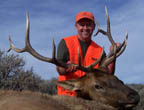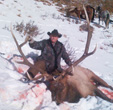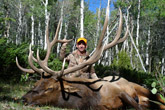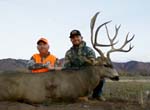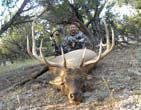Most of your questions may be answered here:
Utah bill aims to force an end to the land transfer debate
Plus, a roundup of federal-to-state land transfer battles across the West.
Print
Share
Kindra McQuillan | Feb. 19, 2015 | Web Exclusive
Earlier this month, Utah state Sen. Jim Dabakis put forward a surprising bill that would force the state to act on its attempts at transferring federal public land into the state's control. If passed, Dabakis? bill would force the state attorney general to make good on the Transfer of Public Lands Act and sue the federal government to move 20 million acres of public land to the state.
?The intent of the bill is to once and for all settle the question about who owns public lands in Utah,? Dabakis, a Democrat who opposes the transfer act, told me last week. ?We all just want finality.?
The land transfer movement, which has existed in Utah since the 1930s, was most recently resurrected in the 2012 Transfer of Public Lands Act. Opponents say the act is legally dubious and would fail in court, if tested.
But Sen. Dabakis insists the purpose of his bill is not necessarily to halta the transfer act, but to end the decades-long wider movement?whether that happens through the court upholding or killing the act.
?[The bill] has nothing to do with my position on the act,? he said in a recent interview. ?It's about forcing the hand of everybody. It's about forcing the hand of those who've made careers out of this dispute.?
That's a reference to the fact that Utah state Rep. Ken Ivory, who sponsored the 2012 act and also works full-time chairing an organization (the American Lands Council) that advocates for land transfers across the West, is professionally vested in this issue.
Ivory did not respond to multiple requests for an interview. But he told Utah?s Fox 13 News earlier this month that he opposes Dabakis? bill.
?I would speculate that Ken Ivory knows he'd lose in court, and Senator Dabakis has called the bluff,? said Jessica Goad, advocacy director at the progressive nonprofit Center for Western Priorities. ?Representative Ivory says he's working on the strategy in Congress, instead, but frankly I'd say that doesn't stand much of a chance either?. Utah?s taxpayers are losing with this fight that's been going on for so long. The sooner it ends, the better for them.?
But Ivory?s commitment to the transfer movement, along with Utah?s history of animosity toward the federal government, suggests the fight may not end soon, no matter what happens.
Utah's Senator Jim Dabakis seeks to end the land transfer debate. Photograph courtesy of wikimedia user Kirstenfrankly.
The idea of transferring public lands has persisted, despite the endeavor?s repeated failures, dating back to the 1934 Taylor Grazing Act, which made the feds responsible for setting grazing rules. That federal law caused a stir among Utah members of the American National Livestock Association, who wanted the more acquiescent state government to control grazing rights on public land.
A turnover of public lands from the feds would transform the West. But scholars say the legal hook to turn them over doesn't exist.
?The Constitution gives the federal government the authority to retain and manage that land,? said John Ruple, a professor at the University of Utah?s College of Law. Transfer advocates say state enabling acts?foundational documents for state governments?require the feds to hand over control of public land to states. But Ruple and other opponents of transfers disagree: "We don't think the state can make that claim. The state?s enabling act does not create an obligation, and in fact [in the act] the state is disclaiming any future claims to federal lands.?
And the argument that state governments can do a better job of managing public land would be irrelevant in court.
?Legally, it's like saying because your neighbor doesn't take good care of his house, his lawn is overgrown and his car is on blocks, and you think you could do better, that means you have the right to take over his property,? Ruple said.
Still, Ivory is keeping the argument alive. The same year he introduced the Transfer of Public Lands Act, he founded the American Lands Council, a non-profit that coordinates advocacy and lobbying for federal-to-state land transfers across the West. Since 2012, counties from at least nine of the 11 contiguous Western states have become paying members of the council, and several other Western states have drafted legislation to pave the way for transfers. The American Lands Council claimed revenue of $228,000 on its 2013 taxes, according to research by the Center for Western Priorities, up from about $123,000 in 2012. The ALC also claimed $95,000 for Ivory?s salary in 2013.
?I think Representative Ken Ivory is very committed to this cause,? Goad said. ?He works on it more than 40 hours a week. We also know from looking at the tax forms that he's personally benefitting, making money off of this cause. So he's committed to the cause, but he's also committed personally to there being a cause.?
Ivory?s interests not withstanding, Dabakis? bill is gaining traction. Earlier this month, it passed Utah?s Natural Resources, Agriculture and Environment Committee with support from both Democrats and Republicans, including Rep. Keven Stratton, who co-sponsors two other bills that make way for a land transfer.
?Some of the TPLA supporters, I think, are optimistic the court might order the feds to turn over the deed,? Dabakis said. ?And my guess is, win, lose or draw, they also just want finality.?
North Sixshooter on Indian Creek is on Utah's 30-plus million acres of federal land, which some legislators seek to transfer to state hands. Photograph courtesy of Todd Burritt.
Among Western states, the land transfer movement has made the most ground in Utah. But it's certainly not the only state where the movement is taking place. Here?s what's happening elsewhere: ?Nationally: Last week, Rep. Diane Black of Tennessee introduced the ?Federal Land Freedom Act,? which would allow states to develop energy on federal lands. The same bill failed in Congress last year.
?Colorado: A bill that proposes state and federal ?concurrent? jurisdiction and management on federal land is in the legislature. Meanwhile, a poll released by Colorado College earlier this month indicates that 68 percent of residents in six western states oppose the transfer movement.
?Idaho: A bill to study transfer logistics passed the legislature in 2013, and the results of the interim committee?s research recommend that Idaho continue laying the groundwork for a takeover of public lands. Legislators are now talking about possible next steps. Meanwhile, around 200 sportsmen marched on the state capitol last week to oppose the action.
?Montana: Three transfer bills are met with stiff opposition. Republican Sen. Jennifer Fielder?s SB 215 assures that public lands will not be sold to private entities in the event of a transfer. Two other bills prohibit the federal government from selling federal land within Montana, and create a task force to assess the feasibility of a transfer. Meanwhile, hundreds of protestors gathered in Helena on Monday, and a petition to Gov. Steve Bullock to block any efforts to seize public land acquired three thousand signatures within 24 hours of going online. The Montana Wood Products Association board of directors issued a policy statement last Friday opposing efforts to transfer federal lands to the state, and state Sen. Jon Tester called the transfer movement ?a mistake.?
?Nevada: A task force created in 2013 has concluded that Nevada stands to gain from a federal transfer, but Paul Aizley, the chairman of the Legislative Committee on Public Lands, refuses to allow talk of transfer in committee. Meanwhile, motorized recreationists are rallying behind the transfer movement in response to a Bureau of Land Management plan to limit motorized access on millions of acres of agency land.
?New Mexico: Twin bills to study transfer feasibility passed their respective committees last week with support from the Stockmen?s Association, which is concerned about grazing restrictions on federal lands. Meanwhile, environmental, sportsmen?s and Native American groups are rallying against the bills. Last week Tesuque Pueblo tribe?s Gov. Milton Herrera testified against it. Federal law and policy, he said, protect Native cultural and religious sites on public land, but there are no state guarantees of the same protection.
?Washington: Senate Bill 5405, which seeks to create a task force studying the feasibility of a transfer, was last week passed to the Senate Rules Committee to decide if the bill will get a second reading.
?Wyoming: Senate File 56, which asks for $100,000 to study transfer feasibility, passed the Senate, while its twin House Bill 209 awaits decision. Meanwhile, nine sportsmen?s groups along with the Sweetwater County Commission wrote a letter to Wyoming legislature earlier this month protesting the transfer, which the groups claim Wyoming can't afford.
?Arizona: Four Arizona counties, along with a number of counties from eight other Western states, have become members of Ivory?s American Lands Council. County yearly membership fees range from $1,000 to $25,000. Meanwhile, hundreds marched on a national forest in Arizona this month to protest a transfer of 2,400 acres of federal land, which houses sites sacred to the San Carlos Apache tribe, to Resolution Copper Mining Company.
?Oregon: Two counties from Oregon have become members of the American Lands Council.
?California: No counties are listed as members on the American Land Council website, which is surprising because California, like other Western states, has hosted the land transfer debate for decades.
Kindra McQuillan is an editorial intern at High Country News.

